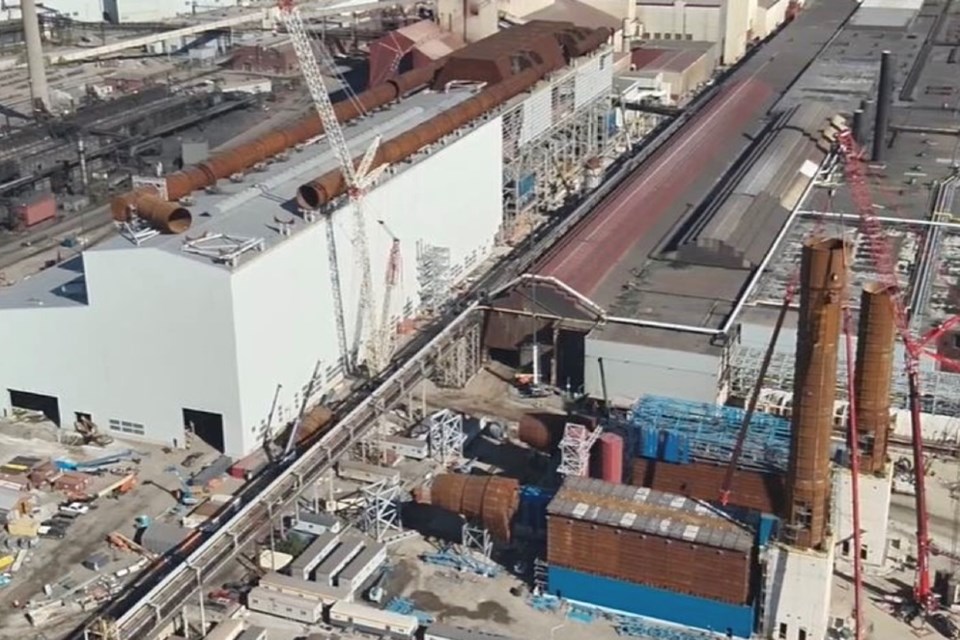Algoma Steel Group Inc. has tonight reported a net loss of $106.6 million during its 2025 fiscal second quarter ended Sept. 30.
That compares to a profit of $31.1 million during the same period last year.
The big loss was largely attributed to operational issues including lower steel shipments, greater consumption of purchased coke and weaker market conditions, the company said in a news release.
Consolidated loss from operations was $83.6 million, compared to income of $36.8 million during the same quarter last year.
Michael Garcia, Algoma's chief executive officer, nonetheless described the loss as demonstrating "solid operational performance in the face of persistent market headwinds."
"Despite challenging market conditions, our planned ramp-up in plate production following completion of our plate mill modernization project continued in the quarter and the associated benefits from a greater mix of value-added products helped offset a steep decline in steel prices," Garcia said.
The company reported tonight that substantially all of its budget for its game-changing electric arc furnace (EAF) transition is now fully contracted.
“This is an incredibly exciting time at our site as we prepare to initiate commissioning activities on schedule for our transformative EAF project," Garcia said.
"Our project team has worked tirelessly alongside our vendors including equipment providers and subcontractors to secure substantially all remaining budgeted items, significantly reducing remaining project budget risk.
"Our contracted commitments now total approximately $870 million and as we move closer to completion of both EAFs, we anticipate the completion of the remaining contracts, including those structured as time and materials, within five percent of the upper end of our previously announced budget range.”
Commissioning activities on the new furnaces are expected to begin on schedule, before the end of the 2024 calendar year.
Other second-quarter highlights reported tonight:
- consolidated revenue of $600.3 million, compared to $732.6 million in the prior-year quarter, mainly attributable to lower steel shipments and realized prices
- adjusted EBITDA of $3.5 million and adjusted EBITDA margin of 0.6 per cent compared to $81.0 million and 11.1 per cent in the prior-year quarter
- cash flows generated from operations of $25.5 million, compared to $57.2 million in the prior-year quarter
- shipments of 520,443 tons, compared to 548,998 tons in the prior-year quarter
- paid quarterly dividend of US$0.05/share
Garcia also dropped some favourable news.
“We are also excited to announce that Algoma’s EAF project is eligible under Ontario’s Ministry of the Environment, Conservation and Parks Emissions Performance Program," he said.
"Under this program, Algoma has applied for, and expects to receive, reimbursement for carbon taxes paid since 2022, driving down the net cash costs of the EAF project.
"We remain on target to achieve steel production at the first EAF by the end of the first quarter 2025, positioning us among North America’s greenest steel producers as we seek to deliver enhanced long-term shareholder value.”
The steelmaker reported it received $32.1 million in insurance proceeds from the collapse of a utilities corridor in January, offset by costs of $4 million from the resulting outage.
Once it has transitioned to EAF steel making, Algoma expects to have annual raw steel production capacity around 3.7 million tons, reducing Algoma's annual carbon emissions by about 70 per cent.
